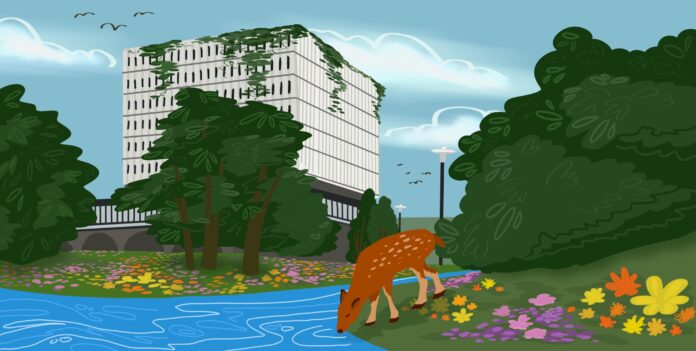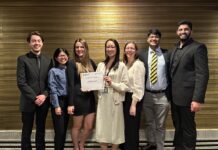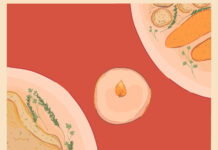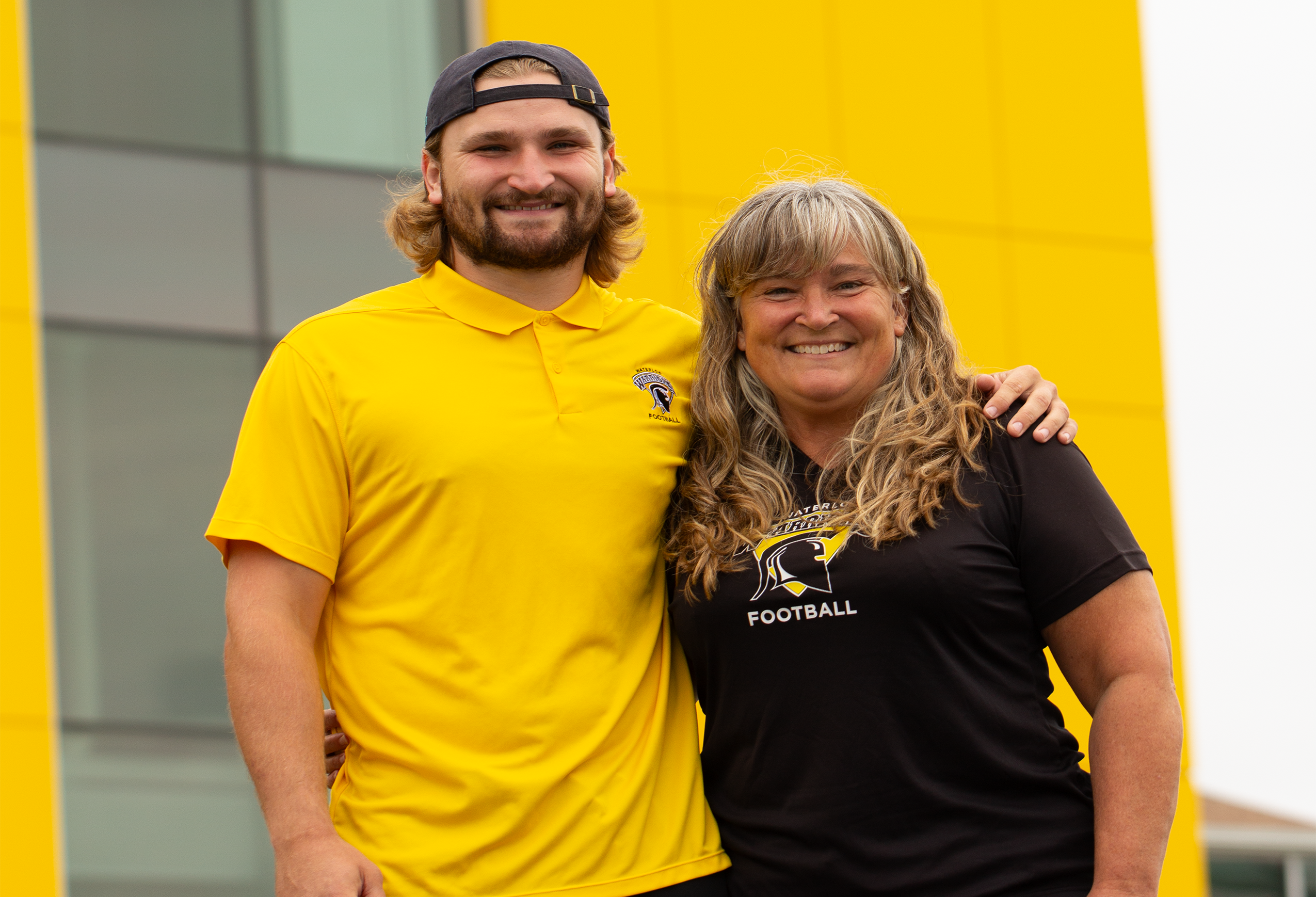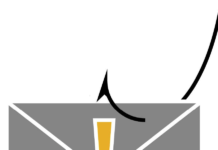UW – Local animals are staking their claim for the empty campus as human activity remains restricted due to COVID-19. With people following lockdown procedures during the ongoing pandemic, an unusual change has taken place at UW.
The massive decrease in occupancy levels has seen the environment revert to its natural state, allowing animals to take over what was once a human-dominated space. Though the healing process has been taking place since last year, its efforts have now visibly doubled, with more animals roaming around UW than ever before. These animals assert that they are the rightful inhabitants of the campus.
Previously second-class citizens compared to the humans who roamed the school grounds, many animals are now enjoying the human-free space. Since March 2020, the lake by Conrad Grebel has become less murky due to people staying at their homes all day. This allowed more fish to thrive within its waters rather than having to deal with the burdens of garbage from the sewers.
In an exclusive interview with Imprint, one of the fish who lives in the lake nearby Conrad Grebel University explains that the lack of human activity has been an unexpected miracle. “In the past few years, the water was all green and dirty all thanks to humans dumping their waste from workspaces and restaurants. However, ever since the pandemic started, it seems like fewer people are polluting. Perhaps it has something to do with people staying at home. I’m glad I can swim with a school of friends every day and never have to worry endlessly and search for them.”
He continued, “What’s more is that new fishes swam from Michigan to our lake. It’s insane! Now we wouldn’t have to deal with humans who are much dirtier on the inside, rather than the outside. I don’t want them to come near our Speaking of which, I don’t have dirt on my fins and pure on the inside!”
Meanwhile, a gaggle of geese were seen waddling along University Avenue in search of a nesting area big enough to include their third cousin twice-removed’s girlfriend’s family. To assert their dominance as the new ruling species at UW, they formed a picket line across the width of the road, hissing at anything that came near them.
“Throughout previous years, it was difficult for us to find a better space to lay our eggs,” one of the female geese said. “My husband and I were extremely worried about crossing the streets since a lot of cars blocked our path. We’d have to take alternative routes and once we arrived at our destination, another couple stole our spot. This happened all the time and it was tiresome. However, with no cars surrounding the campus, it was easier for us to find a safe spot for our eggs.”
When asked about protection, she instantly blurted, “Don’t get me started with the washroom breaks. That will show these humans. Otherwise, we will chase and bite them!”
Some animals were allowed to continue their daily routine with little to no change. Flocks of birds continued to build their nests and gather food for their families, and once they were done, they had fun leisurely flying around campus.
“It’s nice that we were able to find food without a crowd full of people. We were able to get food in no time, even if there are times where we dispute on which food belongs to whom,” one of the birds said.
The seagulls and pigeons enjoyed their food that the people sometimes threw away. One of the seagulls said, “When the summer gets hot, there would be times where people leave exotic food everywhere. Name any food and there will be a great chance they will go after them. Peanut butter and jelly sandwiches, ice cream cones, and hot dogs are my favourites and I hope that for this year, they will bring more as long as other birds steal it from me.”
The pigeons were having a lot of fun on campus… maybe a bit too much. “On breaks, we would fly around and gaze upon the view of the campus.” One of them said. “We have no problems, but it’s very surreal seeing a place with no people around. I overheard a lot of birds having fun with the construction areas which were around two years ago. They would often poop on vehicles such as dump trucks and backhoes. Is that ironic or just funny?”
Not all animals gather food during the daytime as raccoons collect leftovers at night. A female raccoon was able to talk to us. She said, “Every night it was difficult to find good food for the kids. They wanted something sweet and yet people threw in chicken, rice and vegetables in the garbage bins. Some bins contain paper and other disposable waste which often disappoints me as if these humans lack any manners. What is worse is that there would be cars interrupting our path and it gives me a headache.”
She continued with a sigh of relief. “Finally with the pandemic, things have started to change. We not only follow the people in search of food, but the people lead us to trash bins and cans that have all the food my kids needed. They enjoy the apple cords. I don’t know why there is more food? Perhaps it’s those humans that eat up a lot like… rascals and to think they claimed us as one.”
Because the human-free campus experience has been so positive, many animals believe that people shouldn’t be allowed to come back. Several have invited family, friends, and even casual acquaintances to move into UW’s animals-only space. It is more likely that the animals are not only returning for freedom, but they are also seeking vengeance on those who ever dare to invade their territory. You might even say that there may be an upcoming war on people against animals.
Based on their activities, it is apparent that more animals are coming to the UW campus, and they will continue to work and have fun throughout the summer.
Misprint will continue to bring updates on the wonders of nature as there might be a chance that they will fight to the death.
























